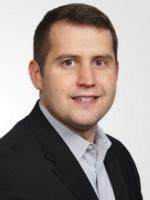Philadelphia workers who are not covered by federal sick leave laws, such as the Families First Coronavirus Response Act (FFCRA), are entitled to paid sick leave benefits under the new public health emergency leave bill (amending Chapter 9-4100 of the Philadelphia Code) signed by Mayor Jim Kenney. The new leave requirements remain in effect until December 31, 2020, unless renewed.
Mayor Kenney signed another amendment to Chapter 9-4100 of the Philadelphia Code to require compensation of lost wages and medical expenses for certain healthcare employees who contract a communicable disease during a pandemic or epidemic affecting the City of Philadelphia.
Public Health Emergency Leave
All covered workers are entitled to up to 112 hours of paid public health emergency leave under the amended ordinance. A covered worker can use the leave for reasons that track the FFCRA, including when an individual is unable to work due to at least one of the following reasons:
- Being subject to a federal, state, or local quarantine or isolation order related to the public health emergency;
- Being advised by a healthcare provider to self-quarantine due to concerns related to the public health emergency;
- Experiencing symptoms related to the public health emergency and seeking a medical diagnosis;
- Caring for an individual who is subject to a federal, state, or local quarantine or isolation order related to the public health emergency, or has been advised by a healthcare provider to self-quarantine due to concerns related to the public health emergency;
- Caring for a child of such covered individual if their school or place of care has been closed, or the child care provider of such child is unavailable due to precautions taken in accordance with the public health emergency response; or
- Experiencing any other substantially similar condition specified by the U.S. Secretary of Health and Human Services in consultation with the U.S. Secretaries of the Treasury and Labor.
What Qualifies as a Public Health Emergency?
A public health emergency is an emergency related to a public health threat, risk, disaster, or emergency that effects Philadelphia that is made or issued by a federal, state, or local official. A public health emergency remains in effect until the declaration or proclamation lapses or the applicable official terminates the declaration or proclamation.
Employers Covered
The amended ordinance applies to both “employers” and “hiring entities.” Hiring entities are defined as “any individual, partnership, association, corporation, business trust or combination thereof, that pays a wage or wages for the services of a covered individual.” Accordingly, businesses that engage independent contractors are covered.
Workers Covered
The ordinance applies to workers, including part-time workers, who were not covered by the paid leave requirements of the FFCRA.
This includes the following:
- Employees of companies with at least 500 employees;
- Employees of medical practices, hospitals, nursing homes and other healthcare workers;
- First responders;
- Employees of small companies with fewer than 50 employees;
- Domestic service workers, including home healthcare workers, home companions, and housekeepers; and
- Many gig-economy workers and contractors, including drivers for app-based services.
A worker is considered a “covered individual” if they have worked for at least 40 hours within the geographic boundary of Philadelphia in a year. Significantly, the ordinance provides that employees “reasonably able” to telework are not required to be given public health emergency leave.
Additionally, the ordinance allows hiring entities to require that sick leave under the ordinance run concurrently with leave provided by federal or state law, unless the federal or state law prohibits the concurrent use of paid leave.
A covered individual can use all or a portion of their leave at any time during a public health emergency and for one month following the conclusion of the public health emergency.
Amount of Leave
Covered individuals who work at least 40 hours in a week are entitled to the greater of (1) 80 hours of leave or (2) their average hours worked over a two-week period (up to a maximum of 112 hours).
Covered individuals who work fewer than 40 hours per week receive an amount of leave equal to the number of hours they worked during an average 14-day period. If a covered individual’s hours vary from week to week, a hiring entity must use one of the following calculations:
- A number equal to the average wages or other compensation the covered individual received per day over the six-month period ending on the date the public health emergency was declared, multiplied by 14, including wages or compensation for any hours for which the covered individual took leave of any type; or
- If the covered individual did not work over such period, the reasonable expectation of the covered individual at the time of hiring of the average wages or other compensation that the covered individual would normally receive within a typical 14-day period.
Significantly, the up-to-112-hours-of-public-health-emergency leave is available to a covered individual each time a public official declares:
- A new public health emergency based on a different emergency health concern; or
- A second public health emergency for the same emergency health concern more than one month after the first public health emergency officially ended.
Individuals who are eligible for paid leave under the FFCRA are not eligible for paid leave under the ordinance.
Verifying Leave
The ordinance provides that the public statement of a public official will constitute reasonable documentation for the use of any paid sick time under the ordinance, and that a covered individual does not have to provide their employer or hiring entity documentation from a public official.
Prohibition on Retaliation
The ordinance prohibits hiring entities from taking retaliatory actions against individuals for exercising protected activity under the ordinance. Protected activities include, but are not limited to, the following: taking sick leave, requesting sick leave, filing a complaint regarding an alleged violation, cooperating with an investigation regarding an alleged violation, and informing an individual of their rights under the ordinance.
Job Restoration
Employers and hiring entities must restore individuals who take public health emergency leave to the same position the individual held when their leave began.
Notice and Recordkeeping
Employers and hiring entities must provide individuals with notice of their rights. Employers also can comply with the notice requirement by supplying each employee with notice of their rights or conspicuously displaying a poster provided by the City of Philadelphia.
Hiring entities must keep records documenting hours worked, sick leave taken, and payment for all individuals.
Healthcare Employee Pandemic Paid Sick Leave
Compensation to healthcare workers for lost wages and medical expenses in the event the worker contracts a communicable disease covers full-time employees with a healthcare organization, part-time employees with a healthcare organization, and “pool employees.” “Pool employees” are defined as “any health care professional, other than an employee of a temporary placement agency, who works only when he or she indicates that he or she is available for work and who has no obligation to work when he or she does not indicate availability.” To qualify, the employee must have worked for the employer for at least 40 hours during the three months period prior to contracting the communicable disease during a pandemic or epidemic.
Healthcare employers must:
- Provide benefits to a pool employee or healthcare employee if the employee contracts the pandemic- or epidemic-related disease during the pandemic or epidemic event;
- Reimburse the pool employee or healthcare employee for all lost wages related to the disease (isolation, treatment, and recovery) when the employee is unable to work; and
- Reimburse the pool employee or healthcare employee for all medical expenses related to treatment for the communicable disease or the employer must provide such care as needed at its facility at no cost to the employee.
Employer must reimburse covered workers at the employee’s normal rate and equal to the number of days the employee would have worked if the employee did not contract the disease. The number of days the employee would have worked is determined by the average number of days worked per week during the three months prior to contracting the disease. The Philadelphia Fair Work Week Ordinance’s exception for employers with unionized workforces does not apply for purposes of this amendment.
Implications for Employers
Employers should consider consulting employment counsel to review and revise policies and practices to ensure they comply with the amendments to Philadelphia’s paid sick leave ordinance. Employers should consult employment counsel to determine which workers may be eligible for leave under the ordinance. Finally, employers should consider providing anti-retaliation training to managers and human resources personnel regarding the changes.






 />i
/>i

